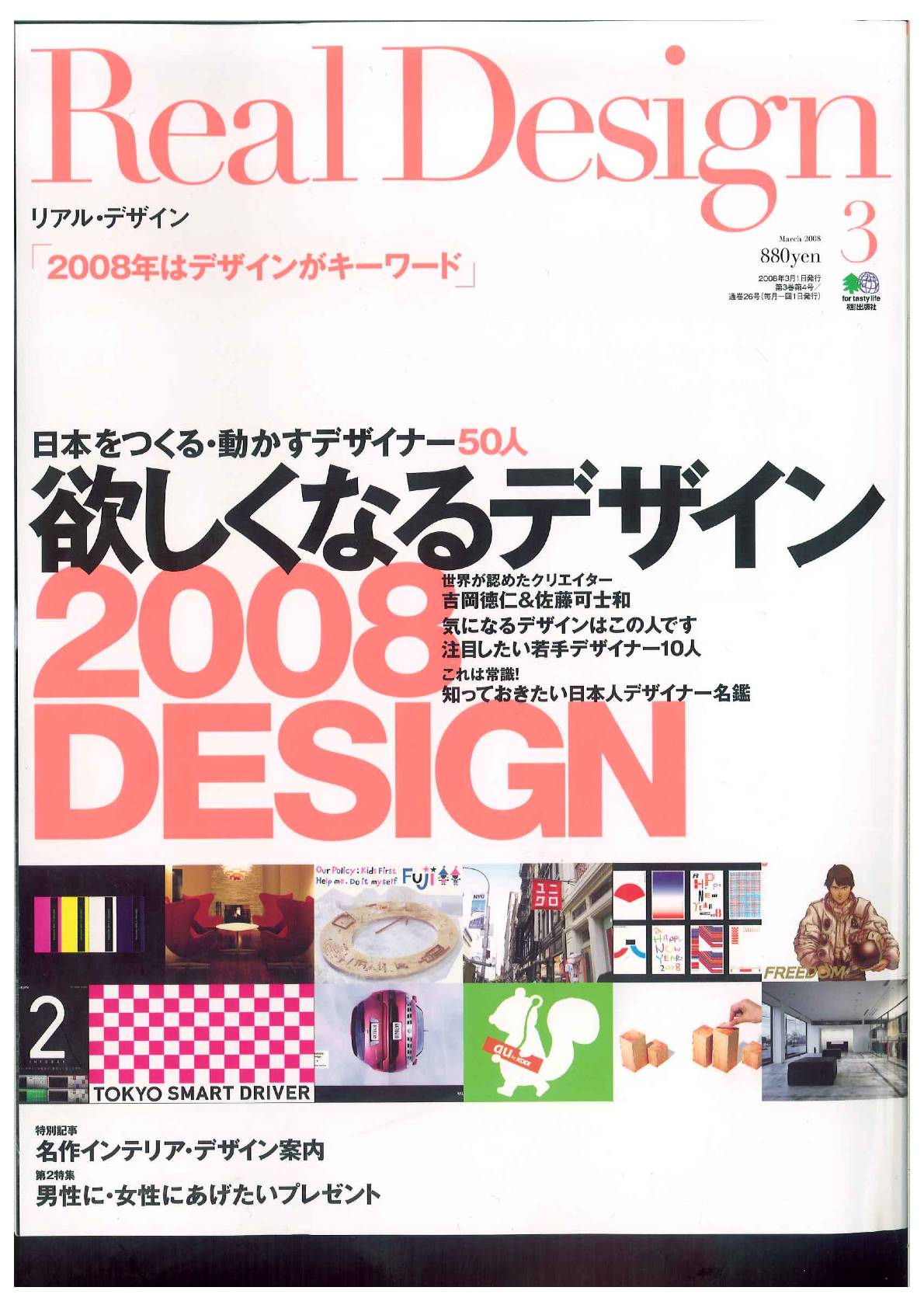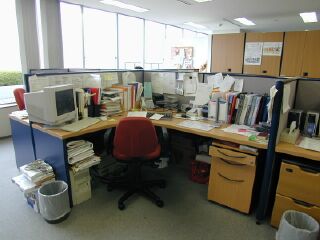Tired of those boring dinner meetings? Maybe it is time to try this
Monthly Archives: March 2008
Is the paperless office an Urban Myth? (Answers)
Here are some of the best answers from my Linkedin Question: (I received a total of 28 answers)
"It would be a myth if most people actually believed it was possible, but their actions dictate that they don’t. Ironically, the technology is available now to make the paperless office a reality, but it will require a cultural change and a change in work habits to be fully realized. With software available for electronic archiving, email, digital signature, workflow, electronic forms, versioning, collaboration, retention, annotations, bate stamping, RFID, and a host of authenitication and security features, it is conceivable that an office could be paperless today. One of the biggest challenges for those pursuing a paperless office is that they do business with so many people who are NOT pursuing a paperless office. But they continue to do their part — I know of companies that have removed staplers, printers and copiers and I even know of one company who will terminate any employee caught printing email. Those who are serious about being paperless are enforcing their policies and slowly changing the corporate culture. These companies who have invested in the right technology and enforce policy are seeing a financial return in both hard and soft dollars." Tom Talamantez
"I think what we will see is that paper will become a very transitory medium, rather than a medium of storage for information. People like to deal with paper. It is portable (for the most part), you can read it with no technology, and you can easily mark it up. You don’t have to charge a battery, upgrade software, or wait for paper to boot up. There is an ease of use and oftentimes, a very nice user interface, in the rawest sense of that term.From a legal standpoint, the electronic version of a paper document will become the evidence that is required. electronic records are easier to search and you can cast a far wider net more efficiently with electronic records. So from a legal standpoint, I suspect that electronic records will be preferred.
Therefore, over time, I expect that the long term retention of paper records as records of an organization will decline. But people will continue to print documents for review and portability." Patrick Cunningham
" Switch the focus from paperless to paperlight.
As a paperless office consultant, my philosophy is to enable businesses to take steps towards this ideal by gradually phasing as much paper as possible out of their day-to-day business processes. I call it going paperlight rather than paperless – by which I mean that a business can dramatically reduce its paper consumption (and all the wasted time and resources that accompany it) just by re-educating people and streamlining their paper handling processes.
Ultimately, every business is keen to save time and money – many are now also more aware of their environmental impact or carbon footprints – and going paper-light is the solution to all of these common objectives. Despite common misconceptions, it IS easily achievable and not at great expense.
I believe that many of the current paper-based processes and documents in every average office will eventually become obsolete as people increasingly become aware that you can achieve twice as much in half the time by handling things electronically. Unfortunatley, many people are discouraged by the concept of going paperless since they think it is an all or nothing committment which it does not need to be. In my opinion, with a little awareness and training, every business has much to gain and nothing to lose by embracing a paper-light approach to everyday business practices." Carrie Bradley
Thanks to all the others who answered.
VitaFeetLeague
We played our first games of the VitaFeetLeague. We are planning to continue playing very second Thursday of the month. We’ll post this on a separate website soon. For the time being see the pictures below and a film here:
Urban Dictionary
A dictionary for the rest of us. A few examples:
Office Nazi: Any manager or manager wannabe that is constantly citing the rule book and forbiding fun behavior. Especially prominent in the IT industry.
"I was checking out UrbanDictionary.com when the office nazi caught me!"
Workahol: what workaholics are addicted to.
Desk: "Confucius say: Secretary not part of office furniture, unless screwed on desk"
Phone tennis: Describes a repeated failure of two people to establish verbal contact with other over the telephone, resulting in an alternating series of voicemail messages (or messages left with flatmates, etc), bouncing back and forth between the two parties.
Phone tennis: Is usually unintentional and frustrating. Though in exceptional circumstances could be used as a stalling tactic.
Most common where
1) either or both callers do not have a mobile phone
2) either or both mobiles are often switched off or unheard
3) either or both phones are often engaged
4) both caller have busy schedules
5) both callers know they are meant to have a difficult conversation but would prefer to avoid it
"I’ve been playing phone tennis with her all day, it’s getting ridiculous"
And I have added: (more to come later)
Design Victim: A design victim will decorate his or her house by the book, ie. follow the latest trends in magazines, tv shows etc… According to a design victim absolutely everything in their house should be designed: from the teapot (Alessi), to the toilet brush (Starck). The sole aim in life of the design victim is to have a magazine publish his or her interiors. Most relationships with design victims end up in divorce.
Example of a design victim’s dialogue: "Darling how many times do I have to tell you not to wear those red slippers in the bedroom, your suppose to walk bare-footed on a Karim Rashid rug!"
Real Design
An article in March publication of Real Design
You can read the whole article (in Japanese)Â RealDesign
Is the paperless office an Urban Myth?
Office at home
I have been preaching this for some time: the office should feel like home. Interesting to read this at our friends at Shedworking:
Office transformation specialist Morgan Lovell claim there is a new design trend for homely comforts in the office which is "turning the traditional world of British business on its head". They claim that introducing homely touches such as comfy sofas, chill-out areas, staff snapshots – and even a games console – can aid motivation and act as a platform for innovation. MD David Henderson said:
“The ‘office at home’ style is designed to instill team spirit, make employees more comfortable in the workplace and create an innovative atmosphere. The concept has come to the UK from the USA where it has been used to create inspirational environments, particularly in hi-tech industries such as IT.”
This boils down to:
* ‘break out’ areas with low level lighting and booth style seating
* television screens and decorative wall coverings to create a sense of lounge living plus displaying locally produced art in domestic style shelving and bookcases with a broad range of titles
* members of staff are also encouraged to bring pictures of themselves as youngsters for a family-style notice board, while another area includes comfy sofas and a games console where staff can exercise their competitive spirit.
* smaller desks have been introduced to encourage greater interaction and meeting rooms built to enable informal, impromptu meetings.
* fruit platters are prepared every day and lunch is brought in on the first Friday of every month so that everyone can get together and talk
A thought
This morning in The Financial Times: "A Russian proverb goes that if you are looking for a good son-in-law, you would never ask whether he drank, but only how he behaved when he was drunk."
Q&A
Linkedin, the social website that is more business network orientated, has an interesting new feature, where members can ask, as well as answer questions. As I have more of a Question-asker kind of mentality, I wondered "why most work environments are so ugly?"
I rated Pieter Van Der Elst‘s answer as the best. This is what he wrote:
" Dear Martin,
I completely understand the reason of your question.
People around the world put time/ effort and money in creating a home-interior that reflects their personality.
But when it comes to office-interior, most organisations tent to make "safe" choices.
In my opinion, there are 2 main reasons for this.
1st, an office environment needs to fit for each and every employee who’s working at that site.
Person A will love that fresh,flashy green wall and person B will hate that ugly, yet exactly the same, colour.
Therefore, most employers will go for a safe choice, the type of office that you, me and most of us reading this answer have probably seen a thousand times.
Secondly, I think there’s an historical fact as well.
Our society has moved from a production-environment to a "knowledge environment". Thus, the role of "the employee" has changed from producing to communicating.
Just think about the way our parents used to work, and the way you are working today. Even better, think about the way our children will work in a few years time.
(You might want to read "The New Office" by Francis Duffy on this topic)
Unfortunately, the working-environment hasn’t changed as quickly as the job we do.
Communication technology as a good example; has evolved at an amazing speed, (mobile-phones, email, WIFI…) so people can work virtually anyware, yet most companies have not yet taken the step to create that environment that enhances the communication between colleaugues, departments…
And is that not exactly what we do, every single day at work. Communicate?
And this is where you have a valid point when asking your question.
This is exactly where companies have to take the next step and adapt the working-environment they offer their (future) employees.
It is my believe that offering an attractive office will create a huge benefit for most organisations to improve their retention-rate, and to attract a talented workforce…(An issue that is rising for many companies) and enhance their productivity.
Best regards,
Pieter"
Pieter had it spot on, as he understood why I asked the question in the first place. I was not looking for solutions, as I believe that to be one of the reasons why so many of the offices we see to be so ugly in the first place. It is not (only) about design, it is about company culture, communication and team dynamics. Design will not be able to cover the lack of that.
…to be continued…

